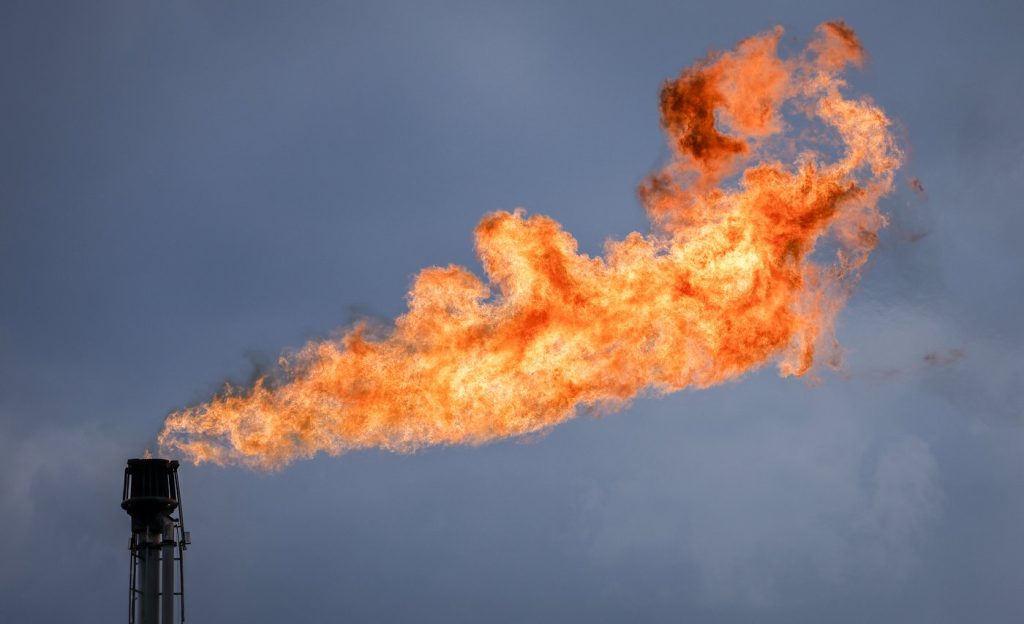EDMONTON — As U.S. tariffs on Canadian goods are set to begin on Tuesday, business groups express concerns about the impacts that the tariffs, particularly on energy, will have on economies in both Canada and the United States. On Saturday, U.S. President Donald Trump signed an executive order imposing a 25 percent tariff on Canadian goods and a 10 percent tariff specifically on Canadian energy, with implementation slated for Tuesday.
Scott Crockatt of the Business Council of Alberta noted that while there is a degree of relief in the oil and gas sector due to the reduced tariff on energy products, the situation remains dire as tens of thousands of Canadian jobs are now potentially at risk. He remarked, “No victory dances are being done,” and emphasized that the repercussions of the tariffs are uncertain, suggesting that the pain could be felt across the supply chain, impacting upstream producers, refiners, and consumers alike.
Crockatt highlighted the necessity of a response from the Canadian government but warned against retaliatory tariffs that could harm Canada’s oil and gas exports. Energy products stand as Canada’s largest export to the U.S., forming a crucial component of Alberta’s governmental revenue. He cautioned that while energy has been less affected by Trump’s announcement, any reaction from Canada should not exacerbate the situation by further taxing this vital industry, as it could have long-term negative consequences.
Lisa Baiton, the president and CEO of the Canadian Association of Petroleum Producers, indicated in a statement that predicting the tariffs’ impact on supply, demand, and trade is complex. She stressed that these tariffs undermine the mutually beneficial relationship between the two countries, likely leading to increased costs and inflation for American consumers while simultaneously damaging the economies of both Canada and the U.S.
Kendall Dilling, president of the Pathways Alliance, echoed similar sentiments, stating that Trump’s decision to set a lower tariff on energy reflects the significance of the energy relationship between the two nations. Nonetheless, he warned that the 10 percent tariff would still hike costs for gasoline, aviation fuel, and other energy sources in the U.S., significantly harming Canada’s economy. He pointed out that Canada’s challenges in developing pipelines to alternative markets have left it vulnerable to such tariff threats and urged the federal government to avoid escalating the situation with restrictive energy trade or export tariffs in response.
The Explorers and Producers Association of Canada also commented, noting that the incoming tariffs would have detrimental effects on both Canadian and U.S. economies while raising energy costs for all Americans. In a statement, they urged Canadian officials to continue engaging positively with U.S. Administration concerns related to border security while adopting a response approach that minimizes negative economic impacts.
Alberta Premier Danielle Smith voiced her opposition to Trump’s tariffs, claiming there is “no economic justification” for them. She assured that Alberta would vehemently oppose measures that would ban exports to the U.S. or introduce taxes on goods moving to the U.S., although she indicated support for a “proportionate response” targeting U.S. goods that can be sourced from Canada or non-U.S. suppliers.
In response to the tariffs, Prime Minister Justin Trudeau announced a $30-billion retaliation package aimed at ordinary consumer items such as American beer, wine, bourbon, and various fruits and juices. When questioned about the potential to block energy exports, Trudeau stated that any measures affecting a specific industry or region would be approached “carefully and thoughtfully” and in full partnership with regional leaders, provincial premiers, and businesses, ensuring no area of the country bore a disproportionately heavy burden.
Smith applauded the reduced oil and gas tariff as a result of her government’s advocacy efforts alongside the energy industry in the U.S., citing her diplomatic outreach to mitigate tariff threats. Trump, however, attributed the tariffs to what he deems an illegal flow of fentanyl and people crossing the border, despite U.S. border statistics indicating that less than one percent of all fentanyl seized in the U.S. comes from Canada.










